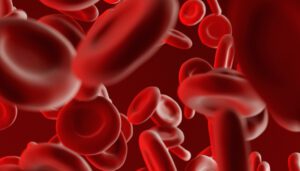
Any vascular injury or issue causing a disruption in the blood flow to the brain can lead to an acquired brain injury (ABI). The brain requires a constant supply of oxygen-rich blood to function properly. When it does not get this blood, neural cells begin to die, and there are numerous other negative effects on the brain.
Even a relatively minor vascular disruption acquired brain injury can continue to affect the patient as their body tries to heal. Without proper blood flow, they may not recover skills as quickly, or at all. This type of injury may also cause some of the symptoms of postconcussive syndrome or PCS.
Vascular Disruption Can Lead to ABI
Vascular disruption can result in an acquired brain injury when it occurs on a massive level in a single incident, such as when someone suffers a gunshot wound to the neck. This type of disruption in blood flow can cause an ABI in only a couple of minutes and even lead to death. If an injury compromises the arteries and veins in the neck, the victim may bleed out before medical help arrives.
Not all vascular disruption happens on this level. The microvessels of the brain can also suffer disrupting injuries. Additionally, vascular disruption can occur over time when repeated trauma damages the small vessels of the brain. While research is still new on the topic, this may play a role in concussion-related syndromes diagnosed in hockey players, retired football stars, and race car drivers.
Vascular Disruption and ABIs: The Lasting Effects
Every injury is different, prompting different symptoms and affecting the person in a completely unique way. If the vascular disruption is significant enough to create a moderate or severe ABI, signs and symptoms may include:
- Loss of consciousness
- Mobility and dexterity impairments
- Loss of speech or trouble finding the right words
- Disorientation and confusion, generally feeling “dazed”
- Poor concentration and focus
- Loss of executive function
- Slowed response times
- Loss of short-term memory
- Severe fatigue or difficulty staying awake
- Other sleep disorders
- Dizziness and balance issues
- Coordination problems
- Headaches
- Double vision
- Loss of sense of smell and/or taste
- Deafness or ringing in the ears
- Emotional and behavioral changes
- Epilepsy and seizures
Many of these signs will improve with time. Therapy and rehabilitation can help. However, some people who suffer ABIs must learn to live with lasting physical and cognitive impairments. Permanent personality changes and behavioral changes are also common.
Microvascular Disruption
Current research into vascular disruption on the micro level considers the role these injuries could play in blood-brain barrier dysfunction after a head injury. Most previous research focuses on the death of neural cells as the cause of lasting impairments from these injuries. This could explain the symptoms of chronic traumatic encephalopathy, often suffered by professional athletes. These symptoms include:
- Cognitive impairment
- Impulsive behavior
- Depression
- Short-term memory loss
- Dementia
- Substance abuse and other risky behaviors
- Suicidal thoughts
Treatment and Rehabilitation After an ABI
Depending on the severity of the brain injury and your loved one’s condition, they will likely require some treatment, therapy, and rehabilitation after suffering an ABI. Minor brain injuries may heal quickly, allowing the patient to return to work in a week or two. More serious injuries, however, may require outpatient therapy or inpatient rehabilitation.
Some common types of therapies needed after an ABI include:
- Physical therapy
- Cognitive therapy
- Occupational therapy
- Speech therapy
Those with more serious impairments may spend several weeks or more rebuilding strength and relearning skills in an inpatient rehabilitation facility. Some people never fully regain consciousness or the ability to live independently. They may require long-term care placement, nursing home visits, or other ongoing care.
Pursuing a Civil Suit for Compensation
In many cases, we can tie a vascular disruption injury to someone else’s careless or reckless behavior. This may allow you to take legal action and hold them liable for your medical care, lost wages, pain and suffering, and more.
Some ways negligence or intentional actions could lead to vascular disruption include:
- Repeated concussions playing contact sports, due to improper training on how to tackle
- Trauma to the neck or head
- Ongoing physical abuse
- Gunshot, stabbing, or other violent acts
- Car accident with neck or head injuries
If you or a loved one suffered a brain injury related to vascular disruption, you may be able to pursue compensation for the resulting damages. The Newsome | Melton brain injury lawyers have spent the last two decades fighting to protect the victims of negligence. We’ll review your case for free and take legal action on your behalf.
Call us today: (800) 917-5888.
